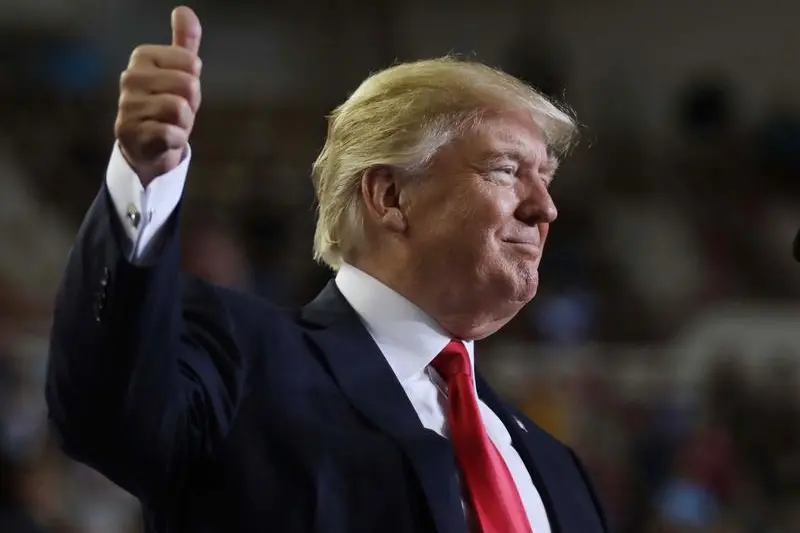PHOTO
Tuesday, May 09, 2017
Manama: Even before setting his feet outside the US since he was inaugurated as President, Donald Trump has made history on several fronts when he announced that his first trip abroad would be to Saudi Arabia.
For the first time in American history, a US President makes his inaugural trip abroad to an Arab or Muslim country, in a gesture that indicates that Trump was particularly keen on strengthening old alliances that had suffered from unexpected onslaughts in recent years.
During his stay in Saudi Arabia, Trump will hold three summits.
A bilateral summit with his host King Salman Bin Abdul Aziz Al Saud will, according to Saudi reports, focus on deepening relations and broadening cooperation. Saudi experts say that several accords will be signed by the two leaders.
Trump will also attend the Gulf Cooperation Council (GCC) mid-year summit and will meet the leaders of the other five GCC members — Bahrain, Kuwait, Oman, Qatar and the United Arab Emirates.
The mid-year summit is regularly held in Saudi Arabia, the home of the GCC Secretariat General, without a set agenda that allows for leeway in addressing issues. The GCC, the only active alliance between Arab countries, was established in 1981 and the concept to hold an advisory summit in May was adapted in the UAE capital Abu Dhabi in 1998 to cut the waiting time between two formal summits.
A report published by Saudi daily Okaz said the talks between the GCC leaders and Trump will focus on “reviewing all aspects of the Gulf-US relations, confronting the antagonistic behaviour of the Mullahs of Iran in the region, looking into ways to deter Iran and put an end to its blatant interference in the domestic affairs of other countries and addressing terrorism and terror groups.”
The GCC countries have been at the forefront of the combat against extremism and terrorism in the region and the new US Administration has regularly expressed its intention to reinvigorate the efforts. Administration officials said that they were keen on reaching agreements with their GCC partners on “burden-sharing” and on “a long-term fix for radicalisation”. The GCC countries have welcomed a greater engagement and stronger commitment from the new US administration and some US officials believe that the GCC partners can “do more.”
The third summit will bring Trump together with leaders of Arab and Islamic countries. King Salman has already sent invitations to several leaders to attend the summit, including Morocco’s King Mohammad VI and Tunisia’s President Beji Qaid Al Sebsi.
According to reports, invitations will be sent to leaders of the member countries of the Saudi-led Islamic coalition to fight terrorism, announced by Saudi Arabia in December 2015.
The Islamic-US summit is expected to address the issue of “hatred” and Trump will most likely use the occasion to directly reassure Muslims that the US did not oppose Islam or Muslims.
Amid the layers of hope building up in the region, Saudis are optimistic that the three summits would be beneficial for all parties.
Observers in the kingdom said the highly visible visit to Saudi Arabia was a confirmation of the new orientation by the Trump Administration seeking to distance itself from the policy of his predecessor that had seriously tainted relations with traditional Gulf allies.
By Habib Toumi Bureau Chief
Gulf News 2017. All rights reserved.





















